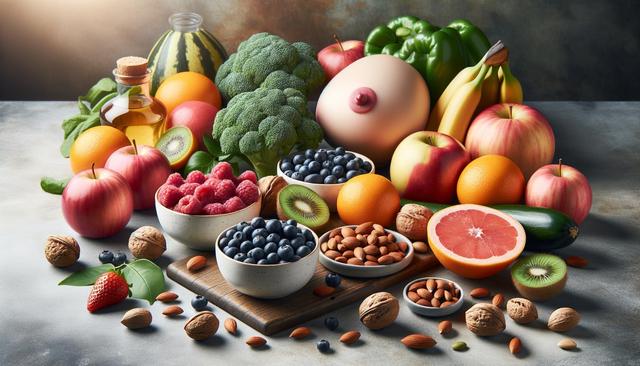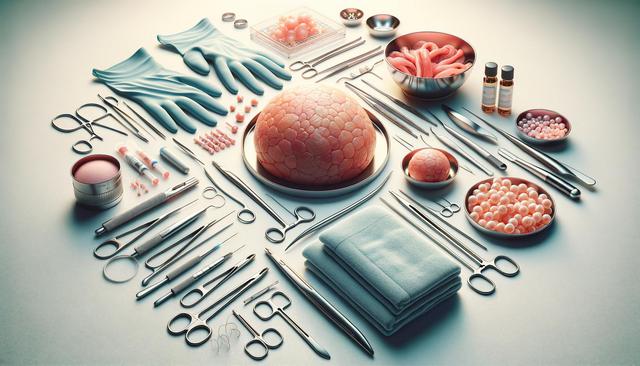
Simple Diet Tips That May Help Support Breast Health
The Role of Food and Nutrition in Breast Health
Maintaining a balanced diet is one of the most accessible ways to support overall health, including breast health. A growing body of evidence suggests that food and nutrition can influence cellular health and hormonal balance, both of which are important factors for breast tissue. While diet alone cannot prevent diseases such as Breast Cancer Her2 Positive, it may help reduce certain risk factors and contribute to a healthier body environment.
Incorporating a variety of whole foods can provide essential nutrients that support breast tissue. Key dietary components include:
- Fruits and vegetables rich in antioxidants, such as berries, leafy greens, and cruciferous vegetables like broccoli and cauliflower.
- Whole grains that offer fiber and plant-based nutrients.
- Healthy fats from sources like avocados, nuts, and seeds, which may help regulate hormone levels.
- Lean proteins, including fish, legumes, and poultry, that support cell repair and immune function.
These foods not only support general wellness but may also play a role in reducing inflammation and oxidative stress, both of which are factors considered in breast health research, including studies related to Her2 Positive Breast Cancer.
Understanding Her2 Positive Breast Cancer and Nutritional Needs
Her2 Positive Breast Cancer is a subtype of breast cancer characterized by an overexpression of the Her2 protein, which can lead to more aggressive tumor growth. While medical treatment remains the cornerstone of managing this condition, nutrition can play a complementary role by supporting the body’s strength through treatment and recovery.
For individuals managing Breast Cancer Her2, it is important to focus on foods that provide energy and are gentle on the digestive system. Recommended dietary practices may include:
- Smaller, more frequent meals to maintain energy levels.
- Hydration with water, herbal teas, and broths to support organ function.
- Minimizing processed foods and added sugars, which can exacerbate inflammation.
Consulting with a healthcare provider or registered dietitian familiar with food and nutrition in the context of cancer care can help tailor dietary choices to individual needs.
Phytonutrients and Their Supportive Role
Phytonutrients, or plant-based compounds, are found in colorful fruits and vegetables and have been studied for their potential to support cellular health. Some phytonutrients may help modulate hormonal activity and act as antioxidants, which could be relevant in the context of breast health.
Key phytonutrient-rich foods include:
- Tomatoes and red peppers (rich in lycopene)
- Turmeric (contains curcumin, known for anti-inflammatory effects)
- Green tea (contains catechins, a type of antioxidant)
- Garlic and onions (contain sulfur compounds with potential health benefits)
While these compounds should not be seen as cures or primary treatments for conditions like Her2 Positive Breast Cancer Breast Cancer Her2, they may offer supportive benefits when included in a varied and balanced diet.
Maintaining a Healthy Weight and Its Impact
Weight management is another factor that can influence breast health. Excess body fat, particularly after menopause, has been linked to higher levels of estrogen in the body, which may affect breast tissue. Maintaining a healthy weight through a combination of food and nutrition choices, along with regular physical activity, can support hormonal balance and reduce inflammation.
Strategies for maintaining a healthy weight include:
- Monitoring portion sizes and overall caloric intake
- Choosing nutrient-dense foods over energy-dense, low-nutrient options
- Staying physically active with exercises like walking, swimming, or yoga
For individuals diagnosed with Her2 Positive Breast Cancer, weight management can also help improve treatment outcomes and recovery. However, it’s important to approach any weight-related goals under medical guidance, especially during treatment phases.
Other Lifestyle Factors That Support Breast Health
Beyond diet, lifestyle habits also play a crucial role in supporting breast health. Certain behaviors and practices can help reduce risk factors and promote overall wellness. These include:
- Limiting alcohol intake, as alcohol consumption has been associated with an increased risk of breast conditions.
- Quitting smoking, which has negative effects on overall health, including breast tissue.
- Managing stress through mindfulness techniques such as meditation or journaling.
- Getting regular exercise, which supports immune health and hormone regulation.
While food and nutrition form the foundation of a health-supportive lifestyle, these additional factors can further enhance one’s efforts to maintain well-being. For individuals affected by Her2 Positive Breast Cancer Breast Cancer Her2, integrating these habits may offer emotional and physical support during and after treatment.
Conclusion: Building a Diet That Supports Breast Health
Focusing on food and nutrition as part of a holistic approach to breast health can offer meaningful benefits. While no single food or diet can prevent conditions like Breast Cancer Her2 Positive, adopting informed dietary habits may help support the body’s resilience. Emphasizing whole foods, maintaining a healthy weight, and integrating supportive lifestyle practices can collectively nurture long-term wellness. Individuals concerned about breast health or managing Her2 Positive Breast Cancer should consult with healthcare professionals to develop a plan that aligns with their unique needs and circumstances.


